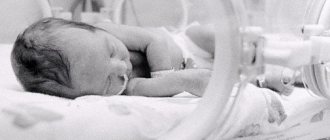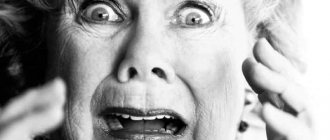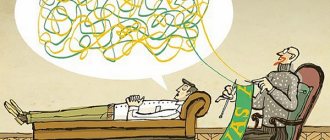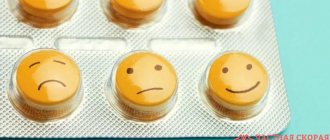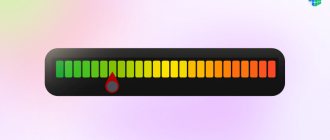Neurotic depression (nowadays the disease is more often referred to as “dysthymia”) is a chronic mental disorder of the affective spectrum, characterized by apathy, loss of interest in the environment and a general decrease in vitality and emotional tone. This form of the disease is distinguished by relatively mild clinical symptoms, so they either do not go to the doctor at all, attributing the deterioration in health to fatigue, seasonal vitamin deficiency, etc., or they come for a consultation at a late stage of the disease. However, the disease responds well to psycho- and drug correction, and the doctors at the Leto clinic have extensive practical experience in treating depressive disorders. Our specialists work in accordance with modern protocols and international recommendations, so they will always be able to select the most effective and at the same time safe treatment regimen.
Causes of depressive neurosis
Psychologists call the body's predisposition and environmental influences the most significant factors contributing to the appearance of this disorder. In the course of the research, a complex of personal characteristics inherent in people prone to depressive neurosis was compiled. These features include:
- straightforwardness;
- suppression of emotions;
- increased activity;
- a strong sense of duty and responsibility;
- rigidity of mental processes;
- taking all life situations seriously;
- low resistance to shocks and experiences.
For the disease to manifest itself, a trigger mechanism is needed. Often they find themselves in traumatic situations such as financial problems, family troubles, or difficulties at work. Doctors also identify two groups of factors that can trigger the development of the pathological process.
- In the first case, the patient’s whole life becomes involved in the development of the disease, when it begins to seem to him that there are many problems in all its spheres.
- In the second case, the disease develops due to the isolation of emotional experiences. A person constantly hides his emotions from others, which ultimately leads to internal conflict.
Causes of nervous depression
In the vast majority of cases, dysthymia occurs at a relatively young age (20–35 years), more often in the fairer sex. As with other depressive spectrum disorders, one of the main etiological factors is a genetically determined predisposition. People whose parents suffered not only from depression, but also from bipolar disorder, manic-depressive psychosis, etc. are at risk.
However, heredity is only a predisposing factor in the development of neurotic depression. The trigger is usually some stressful life situation. It can be:
- problems in interpersonal relationships;
- unsuccessful sexual experience;
- episodes of physical violence;
- characteristics of upbringing and unfavorable family atmosphere;
- a serious illness, especially one that required hospitalization, long-term treatment and rehabilitation (in such cases, a person is very afraid of a repetition or exacerbation of the pathology, which forces him to constantly listen to internal sensations);
- prolonged physical and mental overload;
- unfavorable social factors (financial problems, lack of own housing, unplanned pregnancy, etc.).
Secondary dysthymia can occur against the background of pre-existing psycho-emotional disorders. Symptoms of the disease may appear after neurosis, psychosis, neurasthenia, especially if treatment was either not carried out or was not carried out in full.
Symptoms of depressive neurosis
Classic manifestations of depressive neurosis will be lethargy, decreased activity, slower speech and thinking, and depressed mood. At the very beginning of the disease, the patient usually complains of symptoms such as general weakness and low mood. Vegetative-somatic signs of the disease are also possible: rapid heartbeat, dizziness, changes in blood pressure, loss of appetite. As a rule, after the appearance of all these symptoms, the patient decides to visit a general practitioner.
Elevated cortisol levels
The hormone cortisol is produced by the adrenal glands. Against the background of stress, its value in the blood can increase to pathological values, which immediately affects the state of the nervous system. In case of excess, cortisol can cause conditions including panic attacks, leading to increased irritability, anxiety, and aggression.
Cortisol (test code 33-20-001);
Steroid profile of 24-hour urine includes 17-ketosteroids (test code 95-86-601).
Symptoms after therapy
After completing a course of symptomatic therapy, patients do not always begin to feel better. Often their health deteriorates, a feeling of weakness appears, persistent hypotension develops, and spastic colitis occurs. The patient’s emotional state also worsens: he is constantly sad, his mood worsens, and there are practically no positive emotions. Symptoms such as slowed thinking, decreased motor activity, and poor facial expressions gradually appear.
In almost all cases of depressive neurosis, patients experience sleep disturbances. They manifest themselves as night awakenings and difficulty falling asleep. Immediately after waking up, patients with depressive neurosis feel very tired, weak and overwhelmed. Some also experience anxiety attacks, tantrums, and even phobias.
If we compare depressive neurosis with depression, its symptoms are less pronounced. This is due to the fact that patients usually retain the ability to soberly assess what is happening, do not lose self-control, and do not withdraw into themselves. It is also important that they do not have suicidal thoughts. Moreover, they are quite optimistic about various life situations. That is why the treatment of depressive neurosis is many times simpler than the treatment of depression.
Russian Academy of Medical Sciences RESEARCH CENTER FOR MENTAL HEALTH DEPRESSION (from hope to confidence). (INFORMATION FOR PATIENTS AND THEIR FAMILIES)
MOSCOW 2008
Oleychik I.V. — Candidate of Medical Sciences, Leading Researcher of the Department for the Study of Endogenous Mental Disorders and Affective States © 2008, Oleychik I.V. © 2008, NCPZ RAMS The vast experience accumulated by humanity and reflected in many literary works convincingly shows that sadness (sadness, blues) has always walked side by side with people, being one of the natural human emotions. None of us are immune from failure, illness, breakup, loss of loved ones, or financial collapse. Every person can face something inevitable and inevitable, when it seems that life loses its meaning and despair becomes limitless. However, normally, sadness, melancholy and melancholy, as natural reactions to events traumatic to the psyche, weaken over time and the person’s condition normalizes without special treatment. The situation is different with depression, which is a mental disorder that differs from natural physiological reactions in its greater intensity, special severity of experiences and persistence of manifestations. True depression rarely goes away on its own, requiring persistent, sometimes long-term treatment. Depressive state (from the Latin word depressio - suppression, oppression) is a disease that concerns not only the individual specific sick person, but is also a significant burden of modern society, since it is spreading more and more widely in the world, causing enormous damage to the health of the population and the state. economy. Moreover, this applies to all countries, regardless of their level of social development. Every year, at least 200 million people worldwide suffer from depression. It is possible that these rates are even higher because most victims of depression do not seek help because they do not realize the severity of their condition. Scientists have calculated that almost every fifth person who has reached adulthood experiences at least one episode of depression during their lifetime. In the most general sense, a depressive state is one of the possible forms of a person’s response to the influence of stress factors. In some cases, depression can be triggered by external negative influences, for example, mental trauma, excessive educational or work overload, infection or other serious somatic illness, traumatic brain injury, changes in hormonal levels, which is especially important for the female body, regular taking certain medications, such as hormones, blood pressure lowering drugs, or abusing alcohol or other drugs. In other cases, depressive states develop as a manifestation of mental illnesses in which the main influence is heredity or characteristics of the nervous system (cyclothymia, dysthymia, manic-depressive psychosis, schizophrenia, etc.). If, based on the description of depressive symptoms contained later in our brochure, you realize that you have indeed developed a depressive state, do not fall into despair, do not “try to pull yourself together”, remember that depression is not a manifestation of weakness of will or character, on the contrary, weakening of volitional qualities is one of the main symptoms of depression. Depression is the same disease as rheumatism, arthritis or hypertension; it responds well to treatment, resulting in complete recovery almost always. You should not blame yourself for the occurrence of depression; it does not indicate either your guilt, or your weakness, or the possible development of a more severe mental pathology. Below we will tell you about the symptoms of depression, which can be extremely varied.
Manifestations of depression
Manifestations of depression can be very different. Depressive states can manifest themselves as disturbances in almost all aspects of mental life: mood, memory, will, activity, which is expressed in the appearance of sadness, sadness, mental and muscular retardation, lasting at least 2 weeks. A depressed mood during depression can manifest itself as mild sadness, melancholy, or boundless despair. It is often accompanied by a feeling of melancholy, unbearable heaviness in the soul, with excruciating pain in the chest, a feeling of hopelessness, deep depression, hopelessness, helplessness, despair and uncertainty. At the same time, the patient is completely immersed in his gloomy experiences, and external events, even the most joyful ones, do not affect him, do not affect his mood, and sometimes even worsen the latter. A constant “companion” of a depressive mood is also anxiety of varying severity: from mild anxiety or tension to frantic excitement and violence. Anxiety and bad mood arise at the mere thought of having to make a decision or change your plans due to suddenly changed circumstances. Anxiety can also manifest itself at the physical (bodily) level in the form of belching, intestinal spasms, loose stools, frequent urination, shortness of breath, palpitations, headaches, increased sweating, etc. The picture of depression is complemented by the disappearance of desires, interests, pessimistic high assessment of everything around him, ideas of his own low value and self-blame. A deficiency of vital impulses manifests itself in patients with a variety of symptoms - from lethargy, physical weakness to a state of weakness, loss of energy and complete impotence. Where an important decision is required, a choice between various options, human activity is greatly hampered. Those suffering from depression are well aware of this: they complain that insignificant everyday tasks, small issues that were previously resolved almost automatically, take on the meaning of complex, painful, insoluble problems. At the same time, a person feels that he has begun to think, act and speak slowly, notes suppression of drives (including food and sexual instincts), suppression or loss of the instinct of self-preservation and the absence of the ability to enjoy life, up to complete indifference to what he previously liked , evoked positive emotions. People suffering from depression often feel “stupid,” “mentally retarded,” or “weak-minded.” Thinking during depression becomes viscous, painful, requires special efforts, one mental image is hardly replaced by the next. The sick person is oppressed by a feeling of his own intellectual inadequacy and professional collapse. Depressed patients have difficulty describing their painful experiences to the doctor. Only after recovering from depression, many of them say that their mood at that moment was low, their thinking was slow, all their undertakings (including treatment) seemed in vain, and the years they had lived were empty and useless. However, at the time of the first visit to the doctor, they could not explain this due to the almost complete absence of thoughts in their heads, “paralysis of thinking.” With depression, there are also often complaints of memory loss, which is why those suffering from it assume that they have “Alzheimer’s disease,” “schizophrenia,” or “senile dementia,” which is not true. These complaints are especially common in depression that develops in adolescence. A typical story Alexey, 18 years old, a 1st year student at a technical university, describes his condition during depression: “Since childhood, I was interested in technology and modeling, could read specialized literature for hours, won school and regional olympiads in mathematics and physics. After finishing school, my dream came true - I passed the exams to a prestigious university with flying colors. Then it seemed to me that the whole world was at my feet, I was flying with happiness “as if on wings.” In September I happily started studying. At the beginning, everything worked out well, but after 2 months I began to notice that it was becoming more and more difficult for me to assimilate what I read, I could not remember the simplest text, and could not solve problems that I had previously “clicked like nuts.” Trying to achieve success by brainstorming for hours or drinking several cups of coffee led to the fact that I completely stopped thinking about anything. It seemed to me that I had “completely and irreversibly become stupefied.” At night I cried, wrapped in a blanket and thought about how best to commit suicide. Fortunately, I met a senior student in the library and shared my problems with him. My new friend said that he had experienced something similar and advised me to contact a psychiatrist at the student clinic. After an examination, I was diagnosed with “adolescent depression” and was sent for treatment to a specialized medical center. After 2 months, I felt completely healthy, returned to my studies and caught up with my classmates.” Depression can also be accompanied by real failures: for example, a decrease in academic performance, quality of work, family conflicts, sexual dysfunction and their consequences for personal relationships. As a rule, the significance of these failures is exaggerated and as a result, a false sense of the irreparability of what happened, the “collapse of all hopes” arises. Another generally recognized danger of depression is the possibility of suicidal thoughts, which often lead to suicide attempts. The condition of a person suffering from depression can suddenly deteriorate sharply, which occurs either without clear external reasons, or under the influence of traumatic situations or unpleasant news. It is in these hours, and sometimes even minutes, that a fatal decision is made. Factors that increase the risk of suicide in depression are past suicide attempts, the severity and duration of the depressive state, the presence of anxiety in its structure, prolonged insomnia, loneliness or alienation in the family, alcohol and drug abuse, job loss and sudden changes in lifestyle, as well as suicides among relatives. Typical story Evgeniy E., 35 years old, leading manager of the company. Almost all my life my career was on an upward trajectory; my goals were clear, clear and achievable. The marriage was extremely harmonious, two beloved children grew up. He devoted almost all his time to the affairs of the company, occasionally, once every 1-2 months, he escaped with his family out of town, to the dacha. He often didn’t get enough sleep, stayed late at work, took assignments home, and was deeply worried about the company’s affairs. Gradually, irritability, fatigue, insomnia, difficulty concentrating appeared, and more and more often he suffered a “fiasco” in his intimate life. Thoughts arose that life had been lived in vain, that it was a “chain of tragic mistakes” that led to a dead end. I began to believe that the choice of work, friends, family was wrong, for which now “there is a reckoning.” Analyzing the past years for a long time, I found more and more evidence and examples of my “duplicity, hypocrisy, insincerity, etc.” I realized that the only way to solve all problems is to voluntarily die. At the same time, he believed that by this act he would free his family from the “burden”, “loser”, “loser”. I decided to lock myself in the garage and poison myself with car exhaust fumes. However, by chance, in a semi-conscious state, he was discovered by an employee of a garage cooperative. He explained what happened as an “accident.” The thought of dying did not leave the patient. I decided to shoot myself with a gas pistol, which I had long ago acquired for self-defense. After being shot in the mouth, he was taken to the Research Institute named after him in serious condition. Sklifasovsky, from where he was discharged a week later. The alarmed wife, suspecting something was wrong, decided to consult her husband with a psychiatrist. He was admitted to the clinic. He agreed to this only out of respect for family relationships; he himself believed that treatment by psychiatrists was completely useless, because... his situation is hopeless and no medicine will help here, but will only “stupefy” his psyche. However, after two weeks of taking a modern antidepressant, the patient’s point of view changed. Everything began to look not so bleak and unpromising, interest in work and in life in general returned, I began to feel more cheerful, more energetic, and an interest in intimate life appeared. I took work to the clinic and called up my colleagues. After two months of treatment, he completely returned to his normal life. I recalled with bewilderment my thoughts about failure, the collapse of life, and suicide. I took the drug prophylactically for about six months, then, on the doctor’s recommendation, I gradually reduced the dose and stopped taking it. Over the next two years, her condition remained stable, career growth continued, and another child was born. Depression is also characterized by sleep disturbances, which occur in approximately 80% of patients. As a rule, these are early awakenings with the inability to fall asleep, lack of feeling of sleep, difficulty falling asleep. These disorders, as well as restless sleep with unpleasant dreams, are often the very first symptoms of incipient depression. If the depression is not deep, it is sometimes difficult to recognize it. This is due to the fact that people are ashamed to tell others about their problems and admit their “weaknesses.” Quite often, especially in Russia, depressive states are masked by alcohol abuse (“vodka cures”). In addition, often patients suffering from depression, in order to “shake themselves up”, “throw themselves into all kinds of troubles”, engage in casual sex, get involved in gambling or extreme sports, go to serve under contract in “hot spots”, lead an idle lifestyle with constant attendance at entertainment events. People around them, relatives who do not have psychiatric knowledge, often accuse them of debauchery, drunkenness, riotous lifestyle, and parasitism. Meanwhile, this behavior is a kind of “cry for help,” an attempt to fill the spiritual emptiness brought by depression with new acquaintances and impressions. Depressive states can occur in mild forms that are easily treatable, but at least a third of depressions are more severe. Such depressions are characterized by: - ideas of guilt, sometimes reaching the level of delirium, i.e. unshakable conviction in their sinfulness, low value (patients consider themselves great sinners, believe that because of them all relatives and Humanity will die, that they are “moral monsters” from birth, allegedly deprived of the foundations of morality and a sense of empathy for other people that they have no place on earth. They find in their past numerous “confirmations" of the above, they believe that the doctor and other patients are aware of these sins and express contempt and indignation with their facial expressions and gestures, but in words, “they are hiding, denying the obvious.” This must be remembered both by the patients themselves and their loved ones in order to prevent the impending threat in time: remove all firearms, piercing and cutting objects, ropes, strong medicines and poisonous substances. household liquids, close windows or shutters, do not let the patient go anywhere alone.If these ideas become persistent and cannot be dissuaded, you must urgently seek advice from a psychoneurological institution or call a psychiatrist at home. - mood swings during the day: in typical cases, the patient, upon waking up, immediately feels melancholy. Sometimes, even before he fully awakens, through his sleep he experiences a painful premonition of the difficult coming morning. In the evening, my health improves somewhat. - the patient may experience a feeling of unmotivated hostility towards loved ones, friends, constant internal dissatisfaction and irritation, which makes him unbearable for the family. - for a number of people suffering from depression, constant doubts, fear for the health and well-being of loved ones, obsessive, i.e. come to the fore. ideas about the misfortunes and troubles of family members that arise against one’s will. A typical story: Dmitry Petrovich, 58 years old, teacher. “After minor troubles at work, I began to feel strange anxiety and agitation. Unpleasant thoughts came into my head that I had done something wrong at work, which is why I double-checked everything many times and went home later than everyone else. But even at home, the anxiety did not go away: as soon as a daughter or wife lingered for even half an hour, terrible pictures of road accidents or violence were drawn in the imagination. I fell asleep only in the morning, got up exhausted and felt drowsy all day. I took valerian and corvalol, but it practically didn’t help. At work they hinted if I should take a vacation. Friends advised me to see a neurologist, but he did not find his pathology and referred me to a psychiatrist. I was diagnosed with anxiety depression. After a course of outpatient treatment, I completely came to my senses.” — in many cases, depression is characterized by unpleasant sensations in the body, disturbances in the activity of internal organs in the absence of objective signs of true somatic, i.e. non-mental illness. At the same time, many patients constantly note pain and internal discomfort. Some complain of headaches, pain in the stomach, joints, and lower back, others complain of intestinal disorders: constipation, indigestion, irritation of the colon, while others pay attention to a decrease in libido and potency. Women often experience painful and irregular periods. Approximately 50% of people suffering from depression complain of such physical ailments when visiting a doctor, without mentioning the depressed mood or state of mind that underlies the depression. Experiencing chronic pain or other unpleasant sensations in the body, patients may not realize that they are suffering from depression, even with severe melancholy, considering the latter a reaction to painful bodily discomfort. — some patients are convinced that they have some rare and difficult to diagnose disease and insist on numerous examinations in general medical institutions. Doctors call this condition masked (hidden) depression, in which a person may experience pain in the head, limbs, chest, abdomen and any other parts of the body, he may be haunted by anxiety, he may suffer from insomnia or, on the contrary, sleeping too much. - Patients may experience disturbances in the cardiovascular system, itchy skin or lack of appetite. And all these are manifestations of depression. - the pathological sensations that patients experience with such depression are quite real, painful, but they are a consequence of a special mental state, and not an internal disease. It must be remembered that the frequency of latent depression exceeds the number of overt ones many times. - with such depression, patients, as a rule, have a changed attitude towards food: they can go without food for a long time and not feel hungry, and when they sit down at the table, they eat only 1-2 spoons - they have neither the strength nor the desire for more . — a sign of depression can be a weight loss of more than 5 kg. within a month. In some people, especially women, appetite during depression, on the contrary, increases, sometimes reaching the level of painful hunger, accompanied by severe weakness and pain in the epigastric region. In some cases, food is taken in excess due to an increased desire for sweets or attempts to distract oneself from painful thoughts by eating frequently. Thus, we see that depression is a disease with many different manifestations that do not go away on their own, requiring special, sometimes long-term, medical intervention. Therefore, if the symptoms described above appear, you must seek help from a psychiatrist who will prescribe and monitor antidepressant treatment.
TREATMENT OF DEPRESSIVE DISORDERS
By now we can say: the vast majority of cases of depression respond well to treatment. According to modern views, effective treatment of depression consists of a combination of pharmacotherapy, psychotherapy and, if necessary, other types of treatment. At the same time, the main role in therapy, of course, belongs to antidepressants - drugs specially designed for the treatment of various types of depression. The creation of antidepressants is based on the discovery of scientists that depression develops as a result of a disruption in the mechanism of biochemical transmission of nerve impulses in parts of the brain responsible for mood, behavior, response to stress, sleep and wakefulness, appetite and some other functions. To ensure coordination of the work of all these functional units, the brain sends special “commands” to them in the form of chemical impulses transmitted from the processes of one nerve cell (neuron) to the processes of another. This transmission is carried out with the help of chemical intermediaries (neurotransmitters), which, having transmitted the signal, partially return to the original neuron. This process is called transmitter reuptake. Thanks to it, the number of transmitters in the microscopic space between the processes of neurons (in the so-called synaptic cleft) decreases, which means that the necessary signals are transmitted worse. As numerous studies have shown, mediators of different structures, in particular norepinephrine and serotonin, are involved in the transmission of signals that ensure the normal functioning of the nervous system. The first of them has a general activating effect, maintains the level of wakefulness of the body and takes part in the formation of adaptive reactions, and the second has a main antidepressant effect, controls impulsive actions, anxiety, aggressiveness, sexual behavior, falling asleep, feeling of pain, which is why it is called serotonin sometimes a “good mood” regulator. A decrease in the amount of transmitters in the synaptic cleft causes symptoms of depression; an increase, on the contrary, prevents their appearance. The ability of some drugs to increase the concentration of neurotransmitters in the synaptic cleft in one way or another allows them to be used as antidepressants. Nowadays, antidepressants are used in Russia, which can be roughly divided into 4 generations based on the time of their creation. The first antidepressants to find widespread clinical use were drugs with a tricyclic structure: amitriptyline and imipramine. They have a fairly powerful effect on most depressive conditions by blocking the reuptake of both norepinephrine and serotonin. However, the real clinical effect of these drugs is significantly offset by their undesirable side effects, which sharply reduce the quality of life of patients during treatment. Side effects of tricyclic antidepressants arise due to the nonspecificity of their effects on receptor structures. Acting in addition to the serotonin and norepinephrine system and on other neurotransmitters (acetylcholine, histamine, dopamine), these antidepressants cause side effects such as urinary retention, dry mucous membranes, constipation, rapid heartbeat, fluctuations in blood pressure, confusion, tremors, sexual dysfunction functions, weight gain. In such cases, it is necessary to prescribe other drugs to correct side effects or reduce the therapeutic dose of drugs, which naturally affects the effectiveness of the antidepressant effect. It has been observed that up to 50% of patients refuse to take tricyclic antidepressants due to severe side effects. For the same reason, doctors are increasingly less likely to prescribe these drugs to patients on an outpatient basis. The situation was somewhat improved by the introduction into practice of second generation drugs - tetracyclic antidepressants, which, along with the ability to block the reuptake of norepinephrine and serotonin, could also affect some other receptors. Being analogues of tricyclic compounds, these drugs have comparable antidepressant activity, but unlike their predecessors, they are safer because they are much less likely to cause unwanted side effects. In addition to antidepressant, mianserin (lerivon) has a clear sedative, anti-anxiety and hypnotic effect. Maprotiline (Ludiamil) has a mild, balanced antidepressant effect. In general, these drugs can treat mild to moderate depression, but are ineffective in patients with severe depression. Today, third generation antidepressants such as fluoxetine (Prozac), fluvoxamine (fevarin), paroxetine (Paxil), sertraline (Zoloft), citalopram (cipralex) and some other drugs that selectively affect the serotonin metabolism system have received widespread recognition today. , preventing its reuptake in the synaptic cleft. Based on the mechanism of action, these antidepressants are combined into the group of selective serotonin reuptake inhibitors. In addition to treating depression, they are used to correct eating disorders, level out panic disorders, so-called social phobias, various obsessive states and chronic pain symptoms. These drugs have gained popularity due to the possibility of once-daily dosing, the accompanying anti-anxiety effect, the presence of a psychostimulant component and a small number of side effects. In addition, they have little toxicity and are well tolerated by elderly patients. However, some researchers note their lack of effectiveness in the treatment of severe forms of depressive conditions, probably associated with selective activity in relation to only one neurotransmitter - serotonin. It should be noted that in recent years, some American scientists have associated the use of these drugs with an increased risk of suicide, which, however, has not been proven. Considering the high frequency of side effects in some of the above drugs and the insufficient antidepressant activity in others, psychopharmacologists have taken the path of developing more effective antidepressants - fourth generation drugs that selectively block the reuptake of both serotonin and norepinephrine, without affecting other neurotransmitters. system and having minor side effects. Three drugs currently meet these requirements: milnacipran (Ixel), duloxetine (Cymbalta) and venlafaxine (Effexor). Their antidepressant activity in the treatment of patients with severe and moderate depression has been confirmed in a number of specially conducted studies, which have simultaneously shown that these drugs are well tolerated. It should be noted that in mild depressive states, antidepressants of plant origin (negrustin, gelarium hypericum, deprim, etc.) can be effective, but there is no reliable data guaranteeing their effectiveness. The opinion of a number of doctors that all depression can be treated with herbs or, say, acupuncture should be considered unfounded. For extremely severe depression that does not go away despite the use of the most powerful antidepressants, electroconvulsive therapy (ECT) can be effective, but this situation is extremely rare and requires careful justification by a committee of doctors and the consent of the patient. An important additional role in antidepressive therapy, especially with concomitant anxiety, is played by tranquilizers - anti-anxiety drugs, such as Xanax, phenazepam, diazepam, nitrazepam, atarax, etc. Drugs that, when taken systematically, can prevent mood swings in various depressive disorders include so-called mood stabilizers or mood stabilizers - lithium preparations, carbamazepine, valproic acid salts, lamotrigine, topiramate. When taken systematically, in most patients, the clinical manifestations of depression either completely disappear or become rare and mild, not requiring hospitalization and not significantly affecting the ability to work. Antipsychotics play a significant role in the treatment of some forms of depression. These include both traditional drugs - fluanxol, triftazin, eglonil, teralen, neuleptil, sonapax, and atypical antipsychotics that are gaining increasing recognition among doctors: seroquel, solan, zeldox, rispolept, abilify, serdolect and others. In drug therapy for depressive conditions, an unconventional, strictly individual approach is used, with the obligatory provision of fruitful cooperation between the patient and the doctor. Otherwise, there may be a violation of medical recommendations regarding the doses and regimen of taking medications. The patient’s faith in the possibility of recovery, the absence of prejudice against the “harm” caused by psychotropic drugs, and systematic adherence to the doctor’s prescriptions largely contribute to the achievement of therapeutic success. Drug treatment for depression takes time. You should not expect a complete cure in the first days of taking the drug. It must be remembered that all modern antidepressants begin to act on depressive symptoms no earlier than 1-2 weeks after the start of treatment. Cancellation of an antidepressant, as well as its prescription, should only be carried out by a doctor. Cancellation is usually made no earlier than 6 months after normalization of the mental state. Even after all symptoms of depression have completely disappeared, do not rush to stop taking the drug yourself, as there is a risk of exacerbation of the disease. Therefore, doctors recommend continuing to take an antidepressant for a certain period of time. A common mistake is premature discontinuation of medications soon after a significant improvement in the condition or due to “forgetfulness.” To avoid this, try to include taking the drug in the list of daily urgent tasks - for example, store it in the bathroom and take it after performing hygiene procedures. When planning a trip, calculate exactly how many tablets you need for the entire period you are away from home. Disruption of therapy is fraught with serious troubles. Psychotherapy for patients with depressive conditions, carried out along with drug treatment, involves various systems of influence, including individual conversations, family and group therapy, etc. An important element of social rehabilitation is participation in mutual support groups for patients who have suffered from depression. This allows other patients to feel helped in understanding their problems, to realize that they are not alone in their misfortune, and to see opportunities for personal participation in rehabilitation activities and in public life.
Diagnosis of depressive neurosis
In order to make a correct diagnosis, the doctor must first carefully collect anamnesis. In this case, special attention is paid to identifying hereditary burden. That is, the doctor should collect as much information as possible about the somatic and mental illnesses of the patient’s relatives, and about family relationships. The doctor must also find out in detail exactly what circumstances preceded the onset of the disease.
The diagnosis of “depressive neurosis” is made in the following cases:
- the patient assesses his mental state as unacceptable and alien to him, he is bothered by mood swings and other symptoms;
- the ability to assess one’s own state and mental reactions is not impaired;
- the patient’s behavior is normal and does not violate generally accepted norms;
- the disorder is persistent and is not a common reaction to a stressful situation.
Sometimes it is difficult to make a diagnosis, since the symptoms of depressive neurosis are similar to the accompanying signs of somatic diseases. That is why, if you suspect depressive neurosis, it is necessary to refer the patient for a consultation with a neuropsychiatrist. In order to definitely exclude the somatic etiology of the disease, consultations with a gastroenterologist and cardiologist, ultrasound, ECG, and EEG will be required.
Neurotic depression and its types
Experts identify several forms of the disease: bipolar, unipolar, reactive, endogenous, situational.
The endogenous form is characterized by a long course; the monopolar form is characterized by a single emotional tone, without ups and downs of mood; the bipolar form is characterized by mood swings and a manic state.
Whatever diagnosis the doctor makes, the prognosis for complete healing is positive, and recovery can occur in a short time. Of course, provided that the patient adheres to all the doctor’s recommendations.
Psychological impact on depressive neurosis
The most used methods of treating the disease are suggestion, self-hypnosis, and persuasion. The goal of persuasion treatment is to develop in the patient new views and a completely new assessment of traumatic situations that he previously could not cope with on his own. Suggestion, in turn, should evoke in the patient ideas, sensations and even volitional impulses without the active participation of the individual in this process. Self-hypnosis is indicated for eliminating sleep disorders, phobias, and expectation neuroses.
Changes in glucose and insulin levels
To maintain stable functioning of the central nervous system, a sufficient amount of glucose is required. Fluctuations in blood sugar levels, especially in diabetics, aggravate depression. People with hypoglycemia (sugar levels below normal) are at higher risk of developing depression. Insulin promotes the transfer of tryptophan and stimulates the synthesis of serotonin, the “hormone of joy.” To identify violations, CITILAB conducts glucose and insulin testing and calculates the HOMA index.
Assessment of insulin resistance: glucose (fasting), insulin (fasting), calculation of the HOMA-IR index (test code 99-00-860)
Procedural treatment of depressive neurosis
Treatment tactics for depressive neurosis also include the appointment of physiotherapeutic procedures. Methods such as therapeutic exercises, electrosleep, darsonval, hydrotherapy, and reflexology have shown their effectiveness. Classic, aromatherapy, Ayurvedic, acupressure massage will also be useful. To improve well-being and get rid of bad mood, patients are also recommended to do yoga, walks in the fresh air, and meditation.
As for treatment tactics, it usually involves three stages:
- The first stage takes about 6-12 weeks. During this time, the doctor records the most striking signs of the disease.
- The second stage lasts about 4-9 weeks. During this period, the patient takes antidepressants, undergoes psychotherapy and attends physiotherapeutic procedures. Thanks to this treatment, his health is gradually returning to normal.
- The third stage involves maintenance therapy to prevent relapses of the disease.
Depressive neurosis is considered one of the most common mental illnesses. Making a diagnosis from experienced specialists usually does not take much time. The success of treating a pathological condition depends largely on the correct combination of drug therapy, physiotherapy and psychotherapy.
How to treat neurotic depression
The diagnosis of “neurotic depression” is made by a psychiatrist based on tests and the presence of symptoms corresponding to the disease. The modern approach involves the use of several techniques - pharmacological, psycho- and social therapy. With the help of antidepressants and tranquilizers, acute manifestations of the disease are relieved, after which the stage of communication between the patient and the doctor follows. Psychotherapy sessions end only after the patient has fully recovered. Along with this, family and friends should take care of creating the most comfortable living conditions for the person suffering from this form of depression.
Other effective techniques include:
- hypnosis treatment,
- homeopathy,
- dolphin therapy,
- physical exercise.
Treatment for neurotic depression should be comprehensive.
Prognosis of depressive neurosis
Depressive neurosis is not as serious an illness as depression. Therefore, the prognosis for patients is favorable. The patient has every chance of recovery and return to a full life. However, if the disease is neglected and treatment is not started in a timely manner, it may transform into a more complex and severe disease - neurotic personality disorder.
Psychologists advise avoiding depressive neurosis in every possible way, since its treatment can take a long time and cause a lot of harm to a person’s mental health. If there are prerequisites for this disease, the following preventive measures should be followed:
- observe the correct work and rest schedule;
- promptly treat somatic diseases;
- avoid emotional overload;
- resolve family conflicts.
Treatment and prevention
The diagnosis and treatment of the disease is carried out exclusively by a psychiatrist, psychotherapist or neurologist. Therapy involves medication methods combined with psychotherapy. Medicines are needed to relieve acute symptoms. Psychotherapy is important for understanding the causes and mechanisms of disease formation. Consultations with a psychotherapist or clinical psychologist can help you learn appropriate ways to respond to stress.
In the treatment of neurotic disorders, first place is given to non-drug methods. In addition to psychotherapy, breathing and relaxation training and attending support groups are relevant.
For mild symptoms of the disorder, the doctor prescribes vitamins and tonics. They contain substances that stimulate and support the nervous system. You cannot prescribe or take medications on your own, not even vitamins. An excess of vitamins in the body is also unsafe for health.
As a form of prevention, it is worth identifying important components - physical relaxation and relieving emotional stress. It is worth adhering to a healthy work-rest, sleep and nutrition regime. Education on the topic of what neurosis and depression are is also a useful method. At the first symptoms, it is recommended to consult a doctor. After all, treatment started on time increases the chances of a speedy recovery.
Causes of the disease
External psychotraumatic circumstances can plunge you into a state of depressive neurosis. The reasons for which the disorder is caused are most often significant for the patient and differ in the duration of the course.
There are two groups of traumatic situations that lead to this diagnosis, namely:
- Numerous failures occurring at the same time in several areas of activity. Such circumstances make the patient feel that his life has failed and drives him into depressive neurosis.
- Circumstances of emotional deprivation. These circumstances are characterized by forced concealment of relationships, the inability to establish contact with a loved one, long-term separation from people dear to the heart, and the lack of opportunities to engage in activities that please the soul.
If a patient is affected by traumatic circumstances for a long time, he is often diagnosed with depressive neurosis. During this state, the patient does not see any opportunities to solve the situation, and instead of looking for a way out of the problem, all efforts are directed toward hiding the negative emotions that arise against this background. This behavior and internal psychological state is reflected in the patient’s health status. First of all, the central nervous system suffers and appears as a vegetative-somatic disorder.
